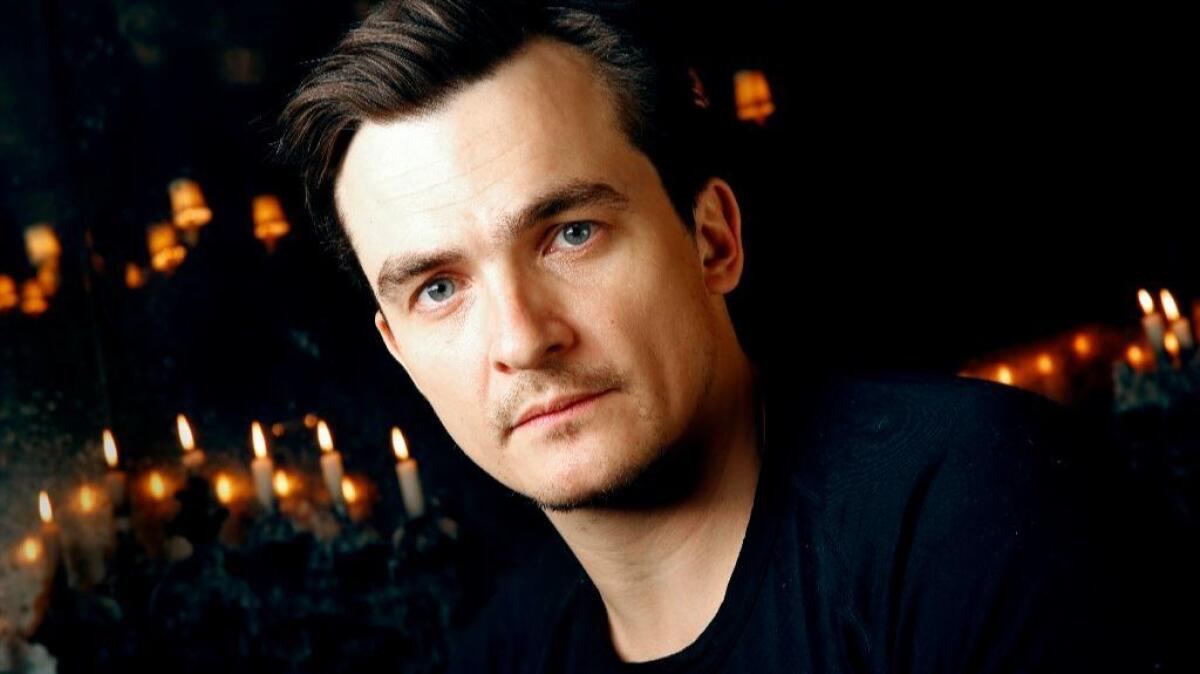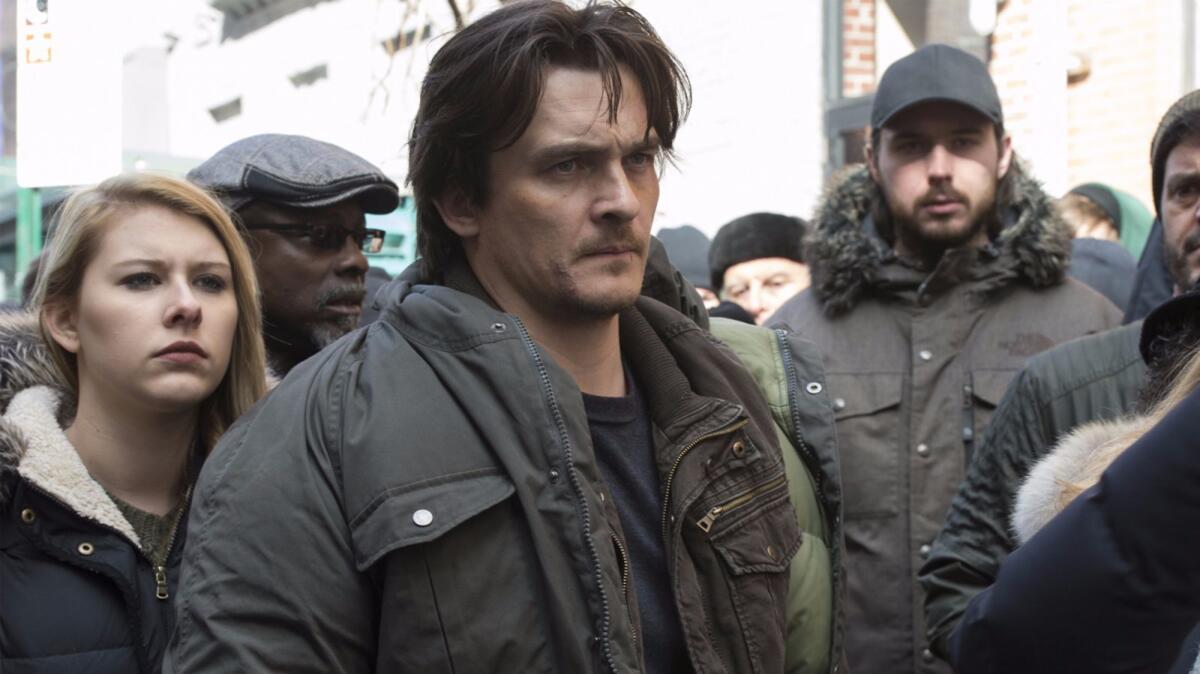‘Homeland’s’ Rupert Friend found much to admire in Peter Quinn

- Share via
It’s been a traumatic couple of years for fans of Rupert Friend’s “Homeland” character, Peter Quinn, a heroic CIA paramilitary agent who appeared to have expired multiple times before his actual exit at the end of Season 6. But thanks to Friend’s sensitive yet steely portrayal of a man damaged outside and in from his experiences, Quinn was able to rise from his ashes and go out in a blaze of glory — and the ultimate sacrifice. The British-born Friend took a moment while here in his adopted hometown to talk about the power of the imagination, Quinn's exit and Roald Dahl for The Envelope.
To clarify: In Season 5, Quinn is basically dead from sarin gas, but lives. Then it seems like Carrie may mercy kill him, but he lives. Then at the end of Season 6, he’s shot while saving the president-elect. Is he dead now or what?
Apparently. You never really know with this show. I’m probably not best qualified to answer that — the question is probably for the writers, and they don’t necessarily know. The answer is yes, though.
Often an actor will say that his character has run its course, and they’ve put him to bed. Is that how you felt with Quinn?
I never felt that; I always saw him as such a fascinating human being. He had to pull off some pretty complicated stuff considering he wasn’t firing on all cylinders. We haven’t really seen a character on television — a returning modern veteran suffering from modern ailments due to chemical warfare and post-traumatic stress and having a stroke — and that was an interesting and brave thing for the writers to address.

What was it like to adapt your movements and speech to play Quinn this season?
All the work that I did was very private. Every single role is different, but for me there is an absolute unifying base note at the heart of it, which is the power of the imagination. I genuinely believe that you can do it if you can imagine it — whether it’s horseback riding, jumping out of a plane or speaking Russian. I’ve been lucky enough to work in a place where I can prove that to myself. I don’t see a difference in that and a novelist or a composer or the person who dreams up a restaurant — it starts with the imagination, and then it’s realized. There’s a magical component to imagination that I realized I love.
And yet you must want to be accurate, so it’s not just about imagination — a novelist writing about jazz will want to visit the clubs.
They might do. I doubt Roald Dahl ever visited a chocolate factory with Oompa Loompas in it. I grew up with Dahl’s obituary on my door — he’s an absolute hero of mine. He was a difficult human being, but my love for his work came from the idea that it was limitless. That whole “write what you know” mentality — I don’t believe that. I’ve never been a black ops, or an American; I’ve never had a stroke or gone to war. My imagination is my imagination, and that’s my job.
My imagination is my imagination, and that’s my job.
— Rupert Friend, actor
Your wife, Aimee Mullins, is an athlete with prosthetic lower legs. Quinn has all of his limbs, but were her experiences in adapting to a changed body helpful in informing your portrayal?
I think that agency in a human, in a character, in a person, is a quality you either have or don’t have. I have met people in my life who simply don’t believe in “I can’t.” They’re wonderful. What I’m interested in is what happens when that agency is tested. You have to be present in your own life. One reason Quinn resonates with people is he ultimately has such agency — and that’s incredibly attractive. Nobody wants to be around a whiny, introspective, navel-gazing person.
You’ve been married now for a year. Has it changed you?
Self-analysis is incredibly difficult. It does feel different — it’s tricky, though, because I would say it feels amazing to be part of an incredibly solid team. My marriage solidified something that was already incredibly copacetic and supportive and powerful. I’m lucky to be married to somebody who gives of herself selflessly every day, and I try my hardest to reciprocate. And sometimes I succeed.
From the Oscars to the Emmys.
Get the Envelope newsletter for exclusive awards season coverage, behind-the-scenes stories from the Envelope podcast and columnist Glenn Whipp’s must-read analysis.
You may occasionally receive promotional content from the Los Angeles Times.



